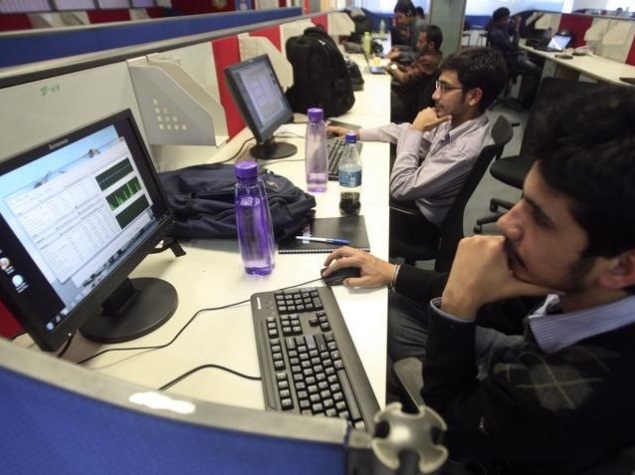- Home
- Others
- Others News
- Smart Cities Can Create Business Opportunities Worth $30 40 Billion: Nasscom
Smart Cities Can Create Business Opportunities Worth $30-40 Billion: Nasscom

Under the government's 100 smart cities programme, approved by the Union Cabinet last month, each selected city will get central assistance of Rs. 100 crores annually for five years.
The government has earmarked Rs. 48,000 crores for development of smart cities.
Smart cities are one of the key initiatives announced by Prime Minister Narendra Modi, under which the government is aiming to recast the urban landscape of the country by making cities more livable and inclusive and drive economic growth.
"We are estimating that it would be in the range of $30-40 billion over the next five to ten years and this is on the assumption that about 10-15 percent of the outlays on smart cities would be for the ICT component," Nasscom President R Chandrashekhar said when asked about the business opportunity for IT sector under the smart cities mission.
The IT industry association has also prepared a report on the role of information and communications technology (ICT) in the smart cities programme which will be unveiled on May 21 during the Smart City Expo in Delhi.
Nasscom was invited by Ministry of Urban Development to lead discussions with industry on possible ICT interventions.
The association has built a framework to highlight the role of ICT in developing smart cities, and categorise ways and means to make relevant ICT interventions that will enable management of future smart cities in a sustainable and transparent manner.
"The report aims to demystify the role of ICT and enable state governments and urban local bodies to integrate ICT into their future city master plans.
"This also represents an opportunity for the industry to partner with the government, as the total ICT spending for smart cities can account for 10-15 percent of the overall budget," Chandrashekhar said.
The mission of building 100 smart cities intends to promote adoption of smart technology based solutions for efficient use of available assets, resources and infrastructure.
Nasscom said ICT framework suggested by it will address the unique challenges faced by Indian cities and provide an integrated perspective across the key pillars of physical infrastructure, social infrastructure, environmental and institutional (governance).
The framework further defines and assesses the core of each sub system of a potential smart city, identifies ICT governance interventions, organisational requirements, and capability development needs at city levels, Nasscom said.
Catch the latest from the Consumer Electronics Show on Gadgets 360, at our CES 2026 hub.
Related Stories
- Samsung Galaxy Unpacked 2025
- ChatGPT
- Redmi Note 14 Pro+
- iPhone 16
- Apple Vision Pro
- Oneplus 12
- OnePlus Nord CE 3 Lite 5G
- iPhone 13
- Xiaomi 14 Pro
- Oppo Find N3
- Tecno Spark Go (2023)
- Realme V30
- Best Phones Under 25000
- Samsung Galaxy S24 Series
- Cryptocurrency
- iQoo 12
- Samsung Galaxy S24 Ultra
- Giottus
- Samsung Galaxy Z Flip 5
- Apple 'Scary Fast'
- Housefull 5
- GoPro Hero 12 Black Review
- Invincible Season 2
- JioGlass
- HD Ready TV
- Laptop Under 50000
- Smartwatch Under 10000
- Latest Mobile Phones
- Compare Phones
- OPPO Reno 15 Pro Max
- Honor Win RT
- Honor Win
- Xiaomi 17 Ultra Leica Edition
- Xiaomi 17 Ultra
- Huawei Nova 15
- Huawei Nova 15 Pro
- Huawei Nova 15 Ultra
- Asus ProArt P16
- MacBook Pro 14-inch (M5, 2025)
- OPPO Pad Air 5
- Huawei MatePad 11.5 (2026)
- Xiaomi Watch 5
- Huawei Watch 10th Anniversary Edition
- Acerpure Nitro Z Series 100-inch QLED TV
- Samsung 43 Inch LED Ultra HD (4K) Smart TV (UA43UE81AFULXL)
- Asus ROG Ally
- Nintendo Switch Lite
- Haier 1.6 Ton 5 Star Inverter Split AC (HSU19G-MZAID5BN-INV)
- Haier 1.6 Ton 5 Star Inverter Split AC (HSU19G-MZAIM5BN-INV)

















